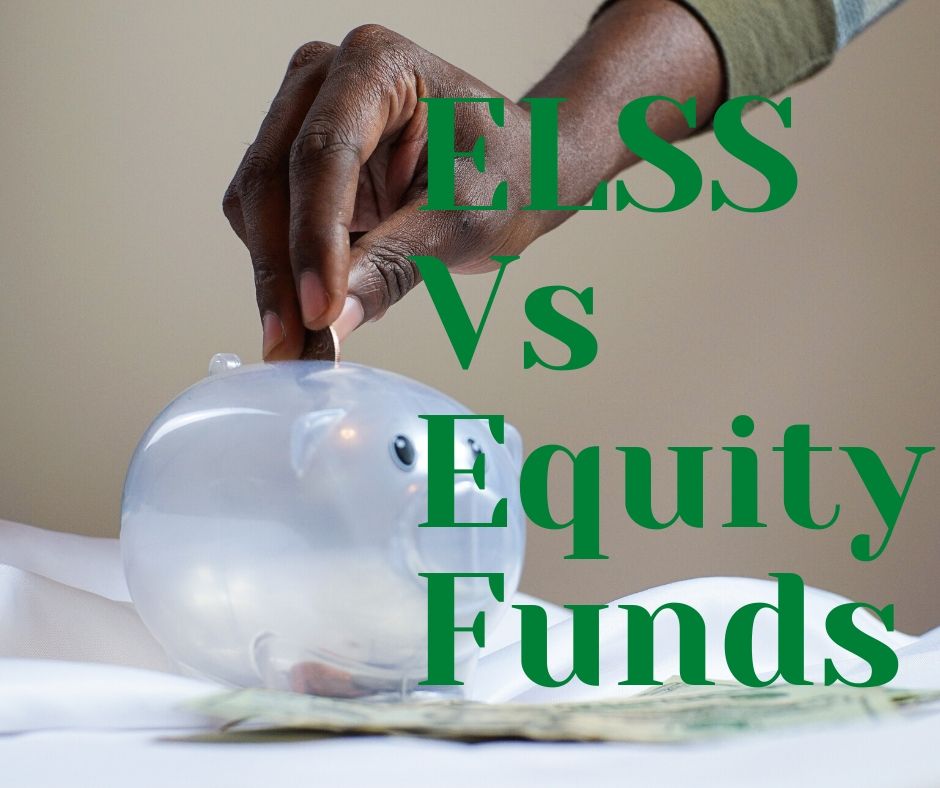ELSS Vs Equity Funds: Facts that will Make You Think Twice !!
- 21 April 2020 | 1110 Views | By Mint2Save

Mutual funds are the investment funds that are managed professionally. It consists of money invested by many investors for the purchase of securities. The investors give their money to the asset management company, which further invests it into stocks, bonds, and other money instruments.
The reason behind the popularity of the mutual fund is its affordability and efficient guidance from a mutual fund manager. Also, it offers diversification and liquidity to its investors.
Mutual Fund investment can be made primarily into two significant assets that are equity and debts. An investor selects an asset by considering various factors that are based on purpose, duration, liquidity, return, and tax advantage of the investment.
Every investor expects certain benefits like that of capital appreciation, dividend and interest out of their investment into the mutual fund.
What is difference between ELSS and Equity fund?
While both the investment products are indeed a sub type of mutual funds, their investment motivation are different. In this article, we shall explore the differences between these two types of mutual funds.
Equity scheme
Under an equity scheme, the investment is made majorly in equity shares and all the instruments related to the equity. The main aim of equity funds is to invest in stocks of different sized companies to earn a higher rate of return.
The risk associated with such investments is always high. Under equity scheme investments, the investor is still ready to take higher risk with the expectations of earning higher profits and gains. These investors invest for the long term and have lots of patience and perseverance.
For example, any person who is planning for retirement, which is going to take place after 20 years, can invest in equity schemes. On the other hand, there is a person whose daughter’s wedding is after that 1 year will abstain from investing in an equity scheme.
The equity fund manager who invests the funds always tries to invest in the stocks of different size companies. The size of a company is known through market capitalization. The size of a company is calculated by multiplying the current market price of the stock with the number of outstanding shares.
Once the equity fund manager calculates the market capitalization of every company, then a rank list is prepared, and each company is classified as Large-cap, Mid-cap, and Small-cap.
According to the Securities Exchange Board of India, the first 100 companies in the list are Large-cap, next 101 till 250 are Mid-cap, and the ones below 250 are small-cap.
While investing in an equity scheme, it is imperative to make such kind of classification an ideal investor is the one who will construct a portfolio that has a mix of all these categories. The investor can select by considering various parameters like his age, his objective of investment, risk appetite and many more.
What is Equity ELSS fund?
ELSS is also a type of equity scheme in which investments are made to save tax. According to section 80C of the Indian Income Tax Act, an ELSS investor can avail a benefit of tax rebate up to Rs 1.5 lakhs on ELSS investments.
With the ELSS, the investor not only gets the benefit of saving tax, but with three years locking period, they build a habit of investing in long term investments. This habit is essential for an equity investor.
ELSS is gaining more popularity not just because of saving tax but also due to its shorter locking period and better flexibility. SIP route can also be chosen by the investors to invest in the ELSS. Various ELSS schemes are becoming popular in the market as they not only provide good return like that delivered by the large-cap but also provides tax evasion up to Rs 1.5 lakhs.
Who should invest in ELSS Mutual funds?
Young generation, involved either in business or are salaried, with a risk appetite can invest in them. They can not only hold the investment for a longer period, but can also reap more than vanilla returns, provided they have patience.
Let us understand the same, with the help of an example. Mr. Rahul, who is a professional, has a taxable income of Rs 15 lakhs. Since he is coming under 30% tax bracket, so he decides to invest Rs 1.5 lakh in an ELSS scheme, as per section 80 C of IT Act, he can deduct this amount from his taxable income. With this, his taxable income will be reduced to Rs 13.5 lakh and save a considerable amount of Rs 46,800. Along with the tax benefit, with time, his investment of Rs 1.5 lakh will start to grow for the upcoming three years.
What is the maximum tax benefit by investing in ELSS Funds every year?
One can invest upto Rs. 1.50 lacs into an ELSS scheme. This amount is also the capping of availing in benefits under Section 80C of the Income Tax Act.
One can save upto Rs. 46,800 in taxes by investing in ELSS mutual funds.
How to choose my ELSS fund?
The following checklist shall come in handy, while choosing a ELSS fund:
- Past Performance of the funds.
- Experience of the fund manager.
- Asset Under Management (AUM) of the fund.
- Portfolio of the fund: Stock concentration, market capitalization of companies invested into.
- Total expense ratio of the fund.
- Composition of the fund.
Since investing in an ELSS fund is a relatively longer relationship, a thorough research on choosing the fund, always comes in handy.










